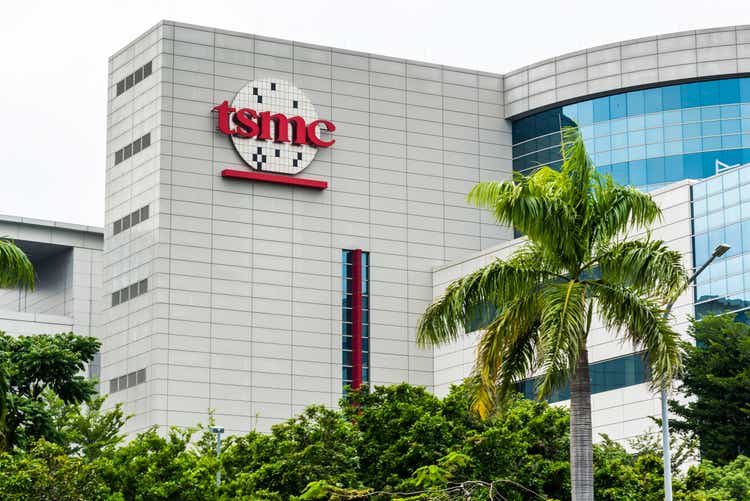
BING-JHEN HONG/iStock Editorial via Getty Images
BofA Securities said Taiwan Semiconductor Manufacturing (NYSE:TSM) faces both potential opportunities and risks with the ongoing developments involving Qualcomm (QCOM) and Intel (INTC).
Reportedly, Apollo Global Management has offered to invest up to $5B in troubled chipmaker Intel. The potential deal comes on the heels of Qualcomm reportedly approaching Intel recently about taking over the company.
Analysts led by Brad Lin said that Qualcomm is one of TSM’s top five clients, contributing mid-to-high single digit percentage of revenue. Intel currently outsources about 30% wafer portion to TSM (contributing low-to-mid single digit revenue to TSM) with plans to reduce the portion to 20%.
If Intel’s Intel Foundry Services, or IFS, receives enough support due to the deal and executes on product development, this could slow the outsourcing pace to TSM. A vital factor to watch will be how Qualcomm uses IFS, if it opts to dispose it or integrate it into its operations. However, if Qualcomm chooses disposal, Intel may accelerate outsourcing and benefit TSM, according to the analysts.
Taiwan-based semiconductor company MediaTek could potentially benefit from the potential deal due to execution risks usually linked with foundries, said Lin and his team.
Qualcomm’s Snapdragon 888 — with Samsung Foundry (OTCPK:SSNLF) — was a classic example which faced significant performance challenges, which led to MediaTek (with TSM) gaining market share in the high-end smartphone system-on-chip, or SoC, segment, the analysts added.
The analysts noted that TSM’s technology leadership and superior execution could continue to provide MediaTek with a competitive edge in chip performance. If dynamics shift post-deal, MediaTek could further boost its industry position, benefiting from TSM’s excellence in foundry service.
In addition, Lin and his team said that Qualcomm has been a major client for TSM, mainly at its leading-edge nodes. The potential acquisition of Intel may enable Qualcomm to expand into x86 and high-performance computing, or HPC, markets.
However, Qualcomm’s existing relationships on a different [Arm (ARM)] architecture with TSM and other foundries could complicate integration with Intel’s largely x86-based fabs, the analysts noted.
The potential deal also faces risks, including possible regulatory challenges that could delay or prevent the acquisition. Along with Intel’s weak financials, these factors introduce uncertainty into the broader semiconductor landscape, the analysts added.
TSM (TSM) has a Strong Buy rating at Seeking Alpha’s Quant Rating system, which consistently beats the market. Meanwhile, the Seeking Alpha authors’ average rating is Buy, and the average Wall Street analysts’ rating is more positive with a Strong Buy.
